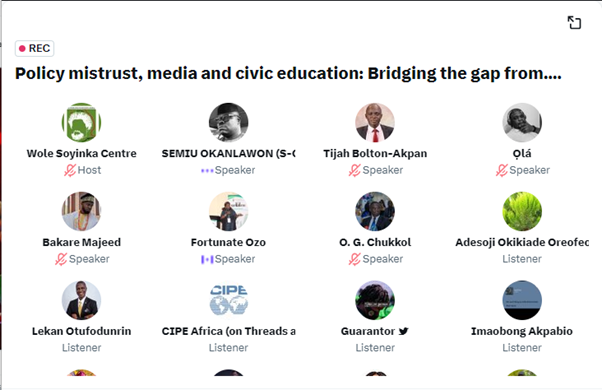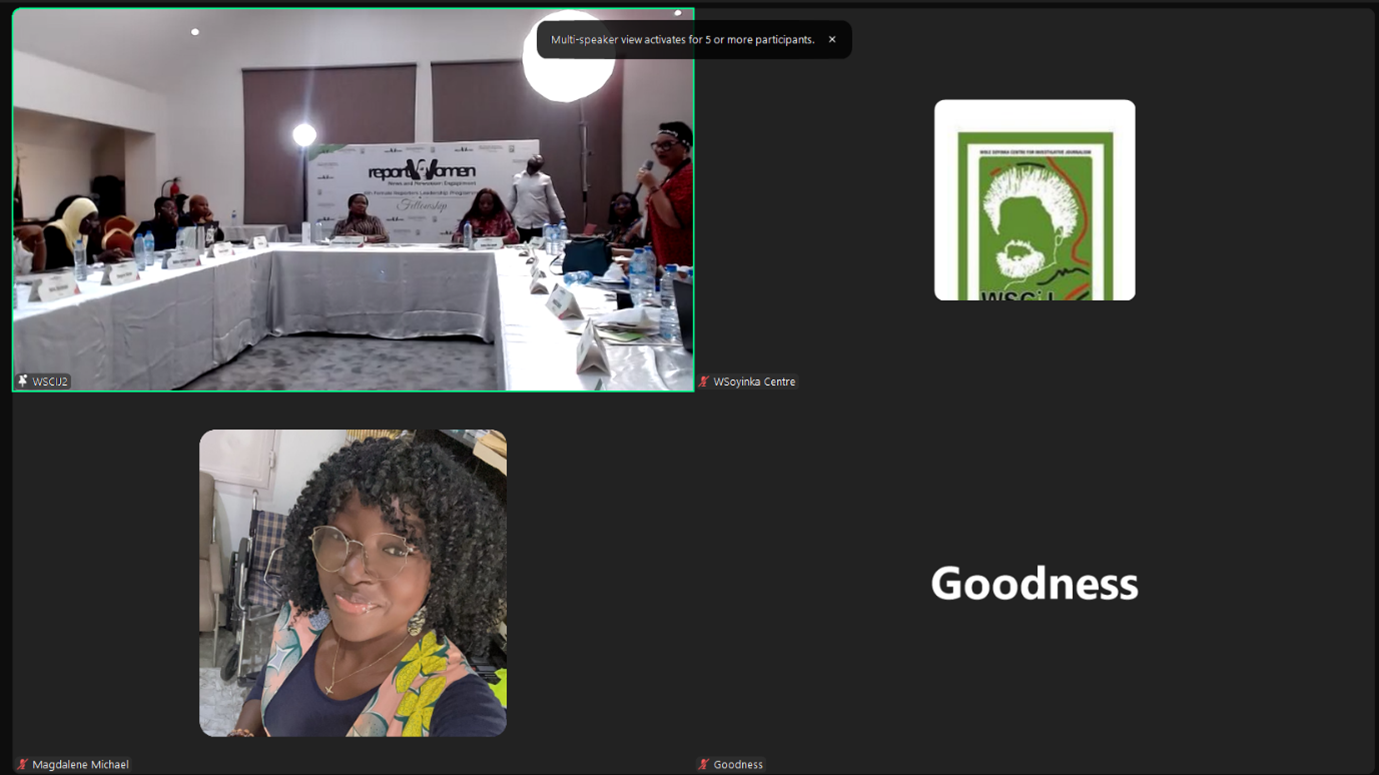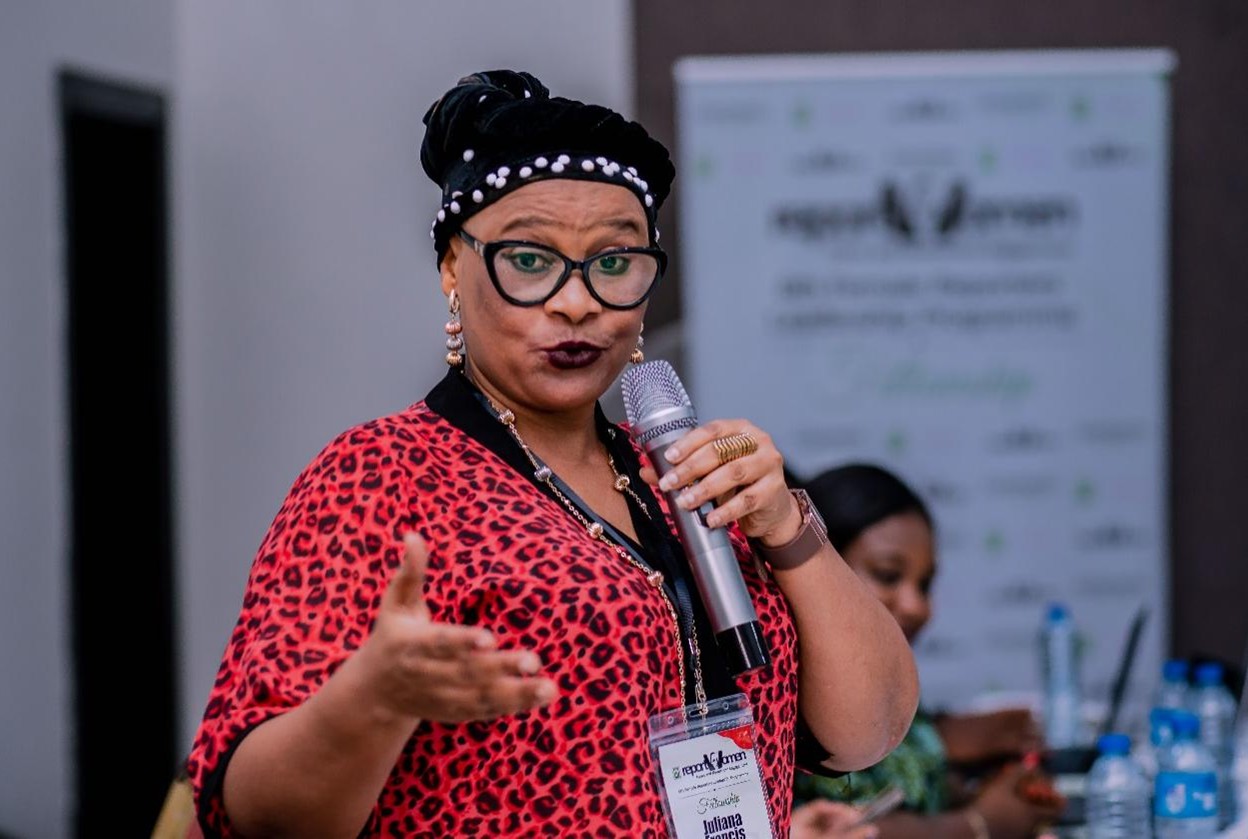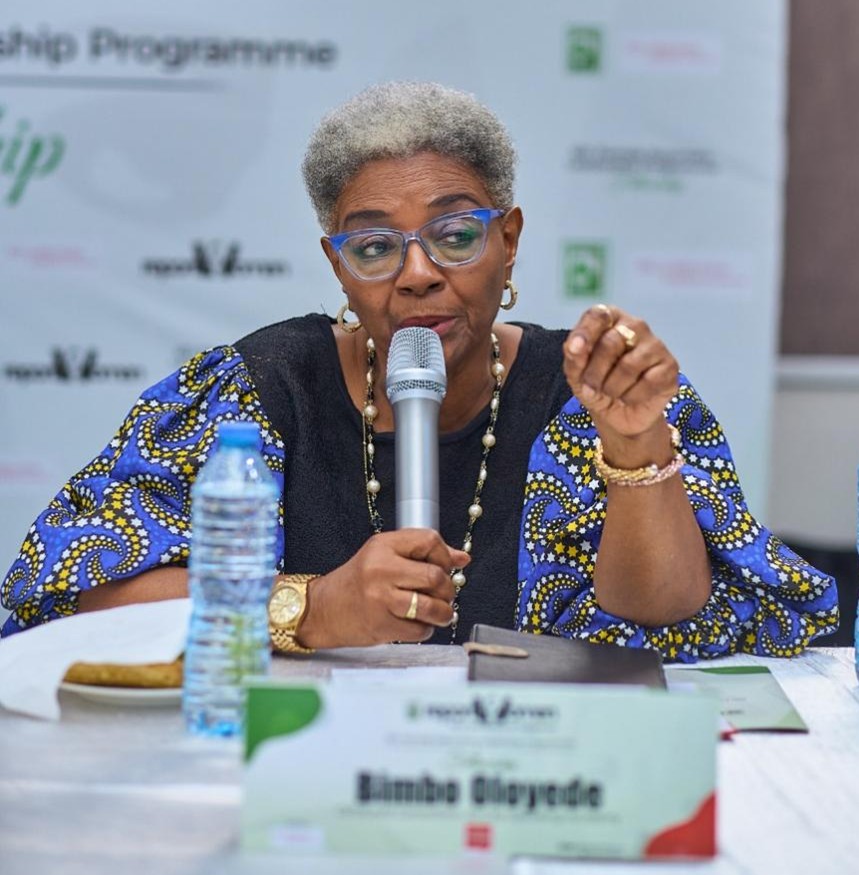Panellists have advocated for decentralised legislative structures, enhanced collaboration between media and civil society organisations on civic education, improved public engagement and transparency in legislative processes to bridge policy gaps. They made this call during a discussion on “Policy mistrust, media, and civic education: Bridging the gap from parliament to implementation” at the Journalism & Society Conversations hosted by the Wole Soyinka Centre for Investigative Journalism (WSCIJ), on Tuesday, 21 May 2024.
The panel includes Tijah Bolton-Akpan, Executive Director, Policy Alert; Bakare Majeed, National Assembly Correspondent, Premium Times; Semiu Okanlawon, Publisher, NPO Reports; Oliver Chukkol, Associate, Templars law firm and Fortunate Ozo, Reporter/Newscaster, Nigerian Television Authority, the moderator. Click to listen to the session.
According to Bolton-Akpan, policy mistrust results from a fundamental gap in Nigerian democracy between legislators and their constituents. He criticised current budget discussions as merely procedural and lacking robust public engagement. To improve this, he suggested that the National Assembly and state assemblies utilise social media platforms and civil society organisations (CSOs) leverage technology to encourage greater public contribution through online discussions and multimedia content.
Okanlawon attributed the legislative gaps and disconnect to misplaced priorities among Nigerians and legislative apathy. Despite the media’s efforts to report parliamentary proceedings and the impacts of bills on Nigerians, the NPO Reports publisher revealed that many Nigerians are more focused on unimportant issues and entertaining content. He urged the media to shift its focus to educating people on the importance of paying attention to legislative activities and the available legal provisions to tackle repressive bills.
Contextualising the media’s efforts, Majeed noted that over 90 journalists report from the House of Representatives and about 97 from the Senate. Yet, there is still a disconnect because people fail to use this information to hold their representatives accountable.
“At the National Assembly, there are no metrics to monitor how legislators voted on motions or bills. Until we break down the voting patterns in the National Assembly, and legislators know that their re-election depends on their decisions, gaps will still exist in parliamentary processes,” explained Majeed.
Majeed then called for decentralising legislative structures to reflect public views better and urged the legislature to disseminate information about proposed bills and directly engage with constituents.
Chukkol criticised the short notices and limited timeframes for public hearings on proposed bills, which hinder meaningful contributions. The legal practitioner noted that the allotted time for hearings at the House Committee stage is often insufficient to curate people’s views. He suggested that the media could enhance its reporting on legislative proceedings by clearly explaining proposed laws and their implications for people’s lives.
Speaking on behalf of WSCIJ, Olaoluwa Adeleye, Programme Officer, said that significant public outcry over recent policies such as the Cybercrime Act and Social Media Regulation Bill showed the timeliness of the discussion. He noted that amendments, repeals and varied responses following public backlash show the pivotal role of the media in bridging the gap between legislators and their constituents on parliamentary matters.
The Journalism & Society Conversations by WSCIJ brings stakeholders together to discuss the pressing issues of press freedom, regulatory frameworks, and the pivotal role of investigative journalism in holding the government accountable and contributing to nation-building.








